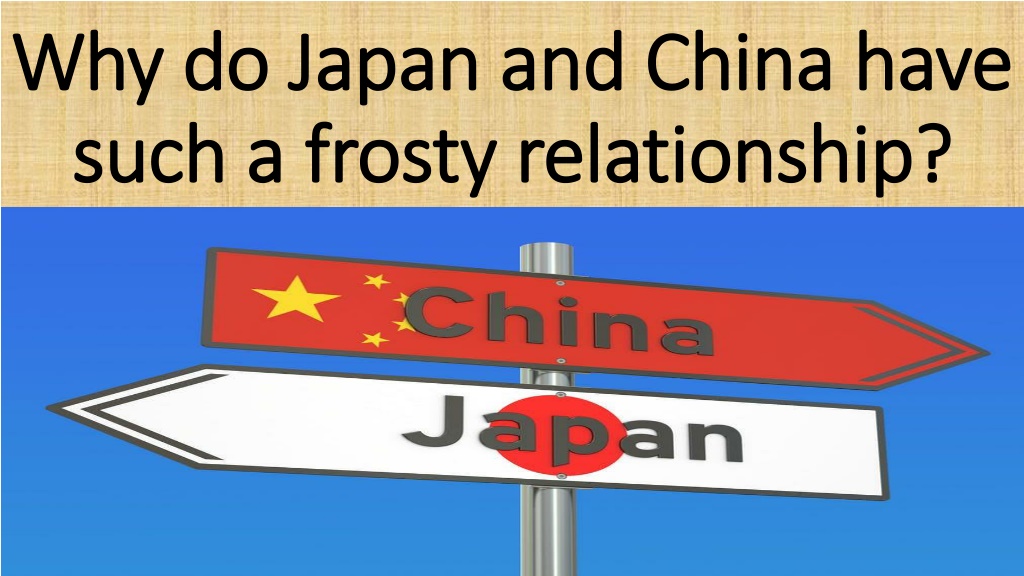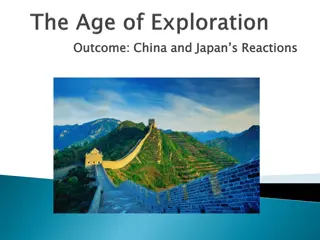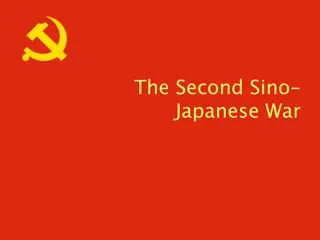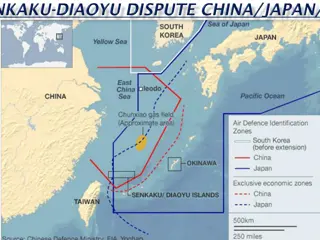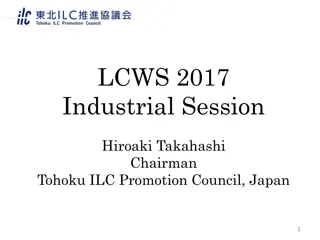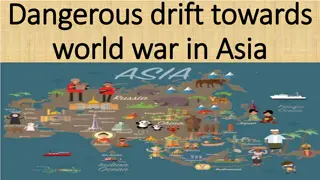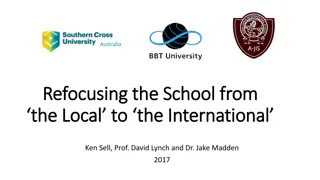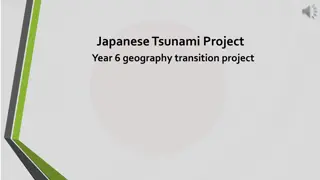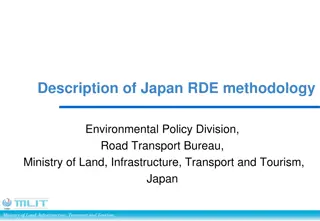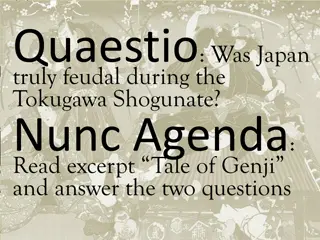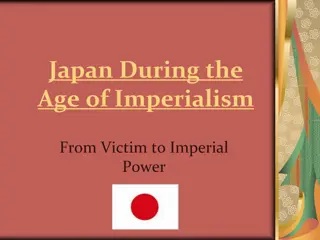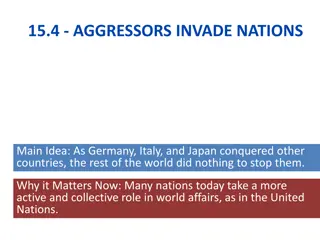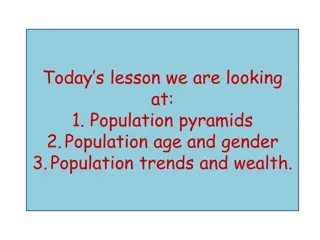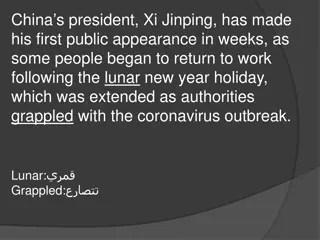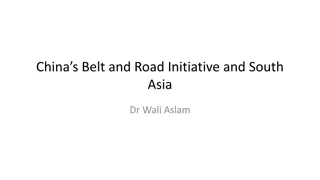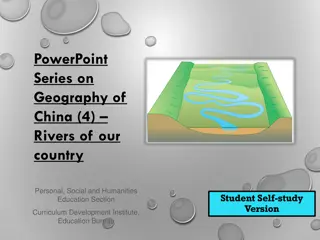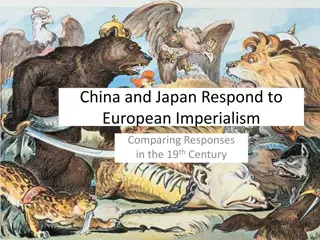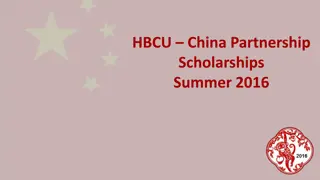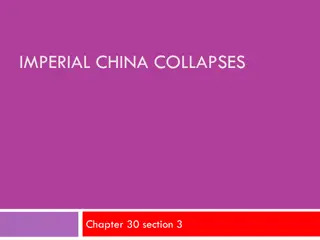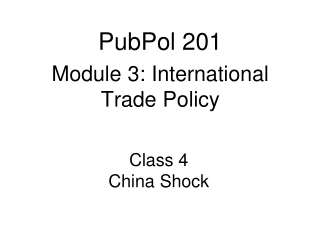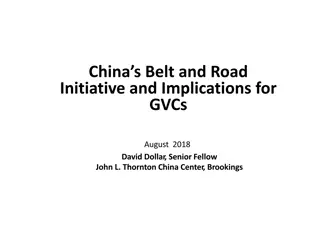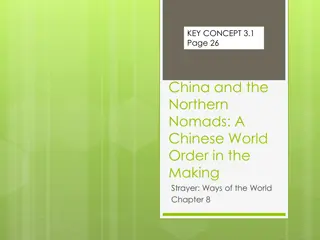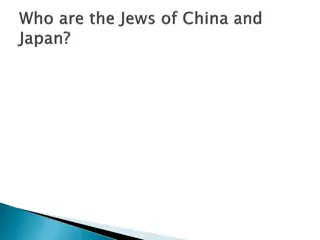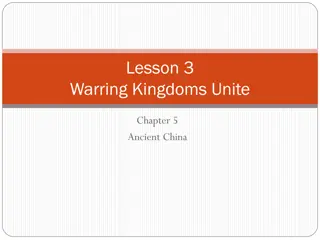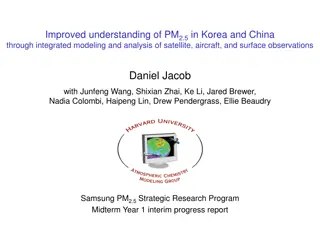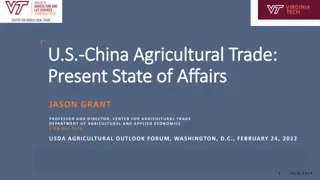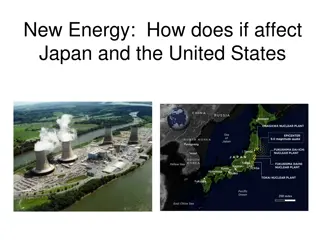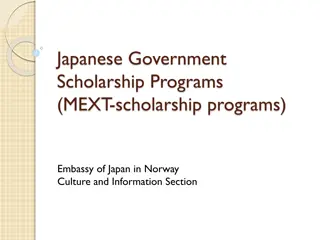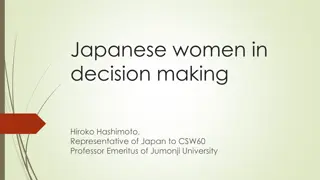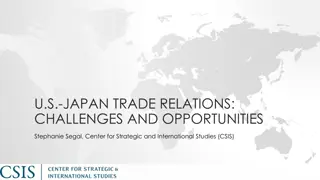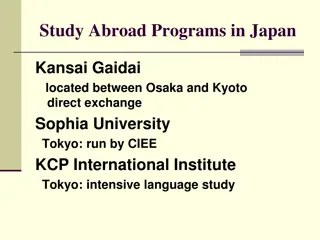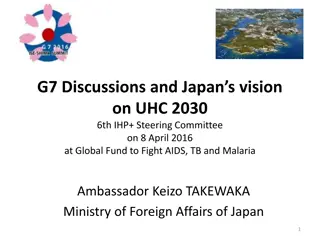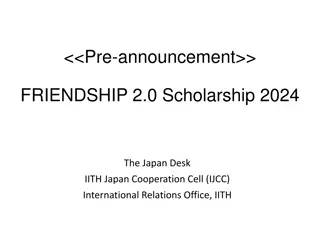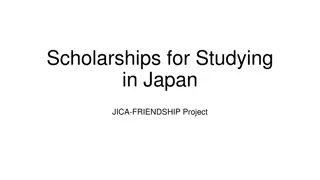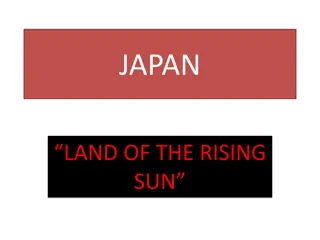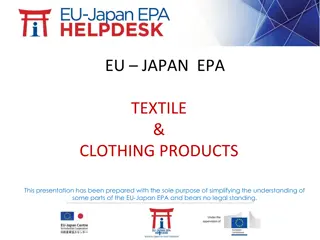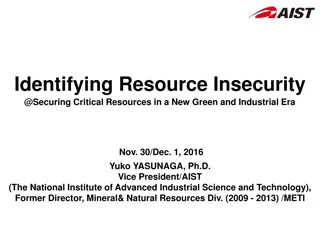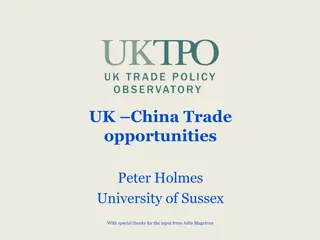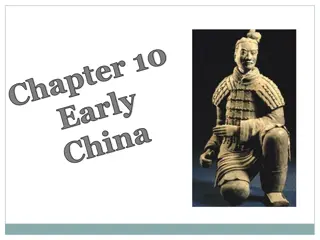Why Japan and China Have a Frosty Relationship Explained
Japan and China have an uneasy relationship, primarily due to disputes over uninhabited islands in the East China Sea known as the Senkaku Islands in Japan and the Diaoyu Islands in China. Tensions have escalated over potential undersea oil reserves, shipping lanes, and fishing areas near the islands. Although the islands were returned to Japan in a 1972 treaty, both China and Taiwan have also claimed ownership, leading to ongoing disputes and strained relations between the two countries.
Download Presentation

Please find below an Image/Link to download the presentation.
The content on the website is provided AS IS for your information and personal use only. It may not be sold, licensed, or shared on other websites without obtaining consent from the author. Download presentation by click this link. If you encounter any issues during the download, it is possible that the publisher has removed the file from their server.
E N D
Presentation Transcript
Why do Japan and China have Why do Japan and China have such a frosty relationship? such a frosty relationship?
Japans Shinzo Abe and Japan s Shinzo Abe and China s Xi Jinping have met China s Xi Jinping have met face face- -to to- -face for the first face for the first time, but why do the time, but why do the neighbours neighbours have such an have such an uneasy relationship? uneasy relationship?
The recent tensions have The recent tensions have centred centred on uninhabited on uninhabited islands and rocks in the East islands and rocks in the East China Sea that both countries China Sea that both countries say belongs to them. say belongs to them.
The Japanese, who have claimed The Japanese, who have claimed the islands since the 19th the islands since the 19th century, call them the Senkaku century, call them the Senkaku Islands and that is how they are Islands and that is how they are generally referred to generally referred to internationally. In China they are internationally. In China they are known as the Diaoyu Islands. known as the Diaoyu Islands.
Crucially, in 1968, potential Crucially, in 1968, potential undersea oil reserves were undersea oil reserves were discovered. The territory is discovered. The territory is close to important shipping close to important shipping lanes and has rich fishing lanes and has rich fishing areas. areas.
The islands were returned to The islands were returned to Japan with a 1972 treaty, but Japan with a 1972 treaty, but at the same time, the Chinese at the same time, the Chinese and Taiwanese both declared and Taiwanese both declared ownership. ownership.
Recently, Beijing has Recently, Beijing has pushed its claim on the pushed its claim on the islands, coupled with its islands, coupled with its growing growing militarisation militarisation of the East China Sea. the East China Sea. of
Militarization, or militarisation, is the process by which a society organizes itself for military conflict and violence. It is related to militarism, which is an ideology that reflects the level of militarization of a state, and which is associated with the glorification of the military, armed forces and weapons and of military power, including through symbolic displays (e.g., parades of tanks and soldiers) and actual use of force, such as through warfare.
In an eight In an eight- -month period in 2012, month period in 2012, there were 40 maritime incursions there were 40 maritime incursions and 160 aerial incursions by Chinese and 160 aerial incursions by Chinese military ships and planes into the military ships and planes into the disputed waters, leading Japan to disputed waters, leading Japan to state that its state that its neighbours neighbours were jeopardising jeopardising peace. were peace.
a sudden attack on or act of going into a place, especially across a border: incursions into enemy territory formal an occasion when people suddenly involve themselves in another person's private situation
to put something such as a plan or system in danger of being harmed or damaged
The fear is that, with so much military and coastguard activity in the area, an accidental collision could lead to an escalation and conflict.
Even a seemingly shallow Even a seemingly shallow exchange between the top exchange between the top leaders of the world s second leaders of the world s second and third biggest economies and third biggest economies can make a considerable can make a considerable difference. difference.
This is particularly true for military cooperation, with the hope that tensions over the Senkaku islands can finally be reduced.
A starting point would A starting point would be the establishment of be the establishment of a military hotline a military hotline between Beijing and between Beijing and Tokyo. Tokyo.
A hotline is a special, direct A hotline is a special, direct phone line between the heads of phone line between the heads of government in different government in different countries. countries. They have discussed setting up a They have discussed setting up a military hotline between the two military hotline between the two countries. countries.
Japan and China could help stabilize Japan and China could help stabilize not just Asia but the whole world. not just Asia but the whole world. China s foreign minister and premier China s foreign minister and premier have both visited Japan this year, have both visited Japan this year, and the number of Chinese tourists and the number of Chinese tourists following suit is expected to reach a following suit is expected to reach a record 8 million this year. record 8 million this year.
Japan Tourism adopt new strategy to Japan Tourism adopt new strategy to increase the tourist s number increase the tourist s number
Japan is still an ally of the U.S., Japan is still an ally of the U.S., and it will avoid adopting any and it will avoid adopting any policies that could undermine policies that could undermine U.S. policies. Therefore, we could U.S. policies. Therefore, we could expect ties to improve but the expect ties to improve but the steps will not be huge. steps will not be huge.
